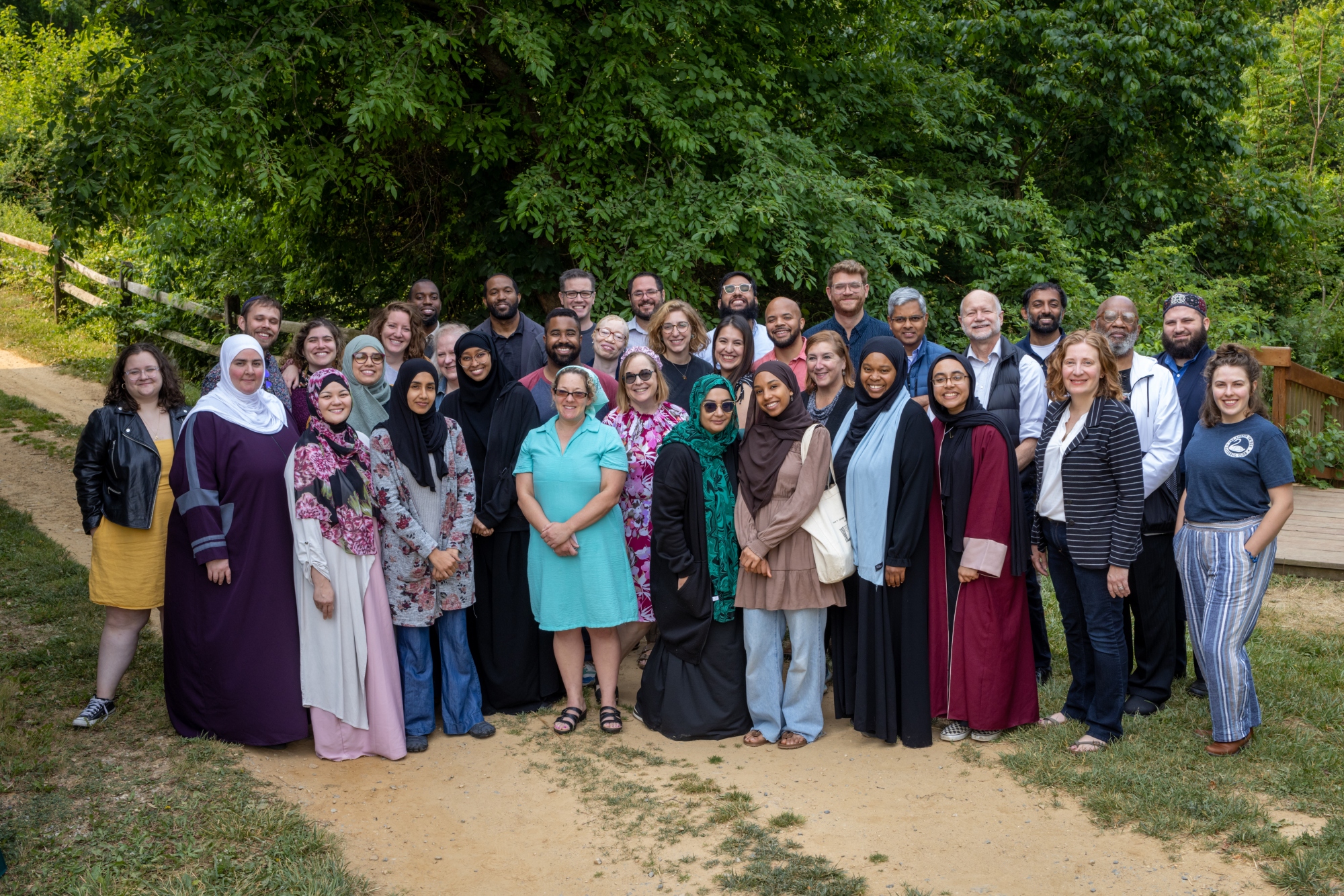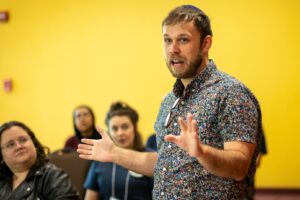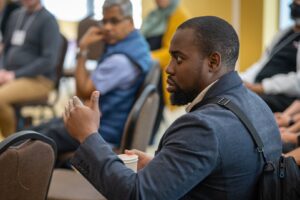
Building on a decade of success, ICJS expanded the 2023 session of our Emerging Religious Leaders Intensive (ERLI), a week-long course on interreligious dialogue, to include leaders in training from all three Abrahamic faiths—Christianity, Judaism, and Islam.
Until now, the program focused on either dialogue between Jewish and Christian or between Muslim and Christian students. Participants in ERLI 2023 described the experience as intense, challenging, and transformative.
“ERLI should be a required experience for seminary students,” said Alex Malanych, who studies at the Reconstructionist Rabbinical College. “Despite the diversity around us, we rarely have the opportunity to speak with other faiths so vulnerably, respectfully, and extensively. I am walking away with a clearer sense of the challenges, urgency, and hope interreligious dialogue entails.”
ICJS ERLI faculty said having all three faiths in the course made it more complicated—but ultimately a far more profound experience.
“Doing a true tri-faith (or ’Abrahamic’) dialogue is challenging, because there are so many issues and historical tensions among Judaism, Christianity, and Islam. But this experience was all the richer for it,” said ICJS Protestant Scholar Matthew D. Taylor. “Students were able to see the real opportunities and impediments to interreligious dialogue and to work through those in an intensive but friendly and congenial environment.”
ICJS Jewish Scholar Benjamin Sax said that “having future religious leaders from the traditions of Judaism, Islam, and Christianity enriched important, timely, and difficult conversations. I was very impressed by the wisdom, knowledge, and experience of all the participants. This is not easy work. The patience and trust practiced by everyone was inspiring.”
Taking place on the scenic grounds of the Pearlstone Retreat Center in Reisterstown, Md., the experience featured long days of discussion, interreligious experiences, and informal conversations over meals and recreation. The course was structured in three phases: orientation (learning about each faith), disorientation (challenging questions to each faith), and reorientation (acknowledging emerging new perspectives). Each day included a prayer experience, led the first day by Muslim students who shared the Maghrib service at sunset. The next day, Jewish students led Shacharit, the morning prayer. The third day, Christian students offered an Episcopal prayer service.
Maximilian Muenke, a student from the Catholic University of America, said that spiritual sharing was especially powerful. “Praying alongside my Muslim and Jewish sisters and brothers is an experience that cannot be replicated in a classroom or any other academic setting,” he said.
Some of the most important interactions were the informal conversations where students who wouldn’t normally encounter one another connected on a personal level. Rashad AbdulAzeem, a Muslim student, said he came into the course recognizing he had deep theological disagreement with students from the other faiths. But through long discussions with one of the Christian students, he found common ground.
“We were talking about our different challenges in life that we were having and how we found guidance and support in those moments. And there were a lot of similarities,” he said. “That’s a positive aspect of being in an environment like this. Because all of us share trauma, life events, perspectives that we can actually end up teaching each other. And I thought that was really valuable.”
Several students said that ERLI provided a venue where the trust they built allowed them to be vulnerable and open. “ERLI created a safe space to ask and answer questions about each other’s beliefs, to clarify misunderstandings, to express mutual concerns, to find common ground and even to disagree in a respectful and open manner,” said Johana Williams, a student at Fuller Theological Seminary. “The intentionality and respect I found in conversations with Jewish and Muslim seminarians, and even with Christians from other denominations, were very meaningful to me and an incredible learning opportunity.”
Perhaps the most important takeaway from the ERLI experience is that deep connection is possible across religious difference. Ben Sax said he was moved by a remark made by a Muslim student who talked about her fear and feeling of vulnerability while praying in public places, like an airport, which is often necessary while traveling.
“She also shared with the group that she disagreed wholeheartedly and fundamentally with another student’s view about the conflict between Israelis and Palestinians. She could never see the world through her colleague’s religious eyes, because she felt her colleague’s position was politically, and possibly even morally, incorrect,” he said. “Yet, she also shared that she deeply trusted and respected her colleague to the point that she could pray with her in public. She also said she knew that her colleague would protect and care for her. The feeling was mutual.”
John Rivera is ICJS’ Director of Communications and Marketing

